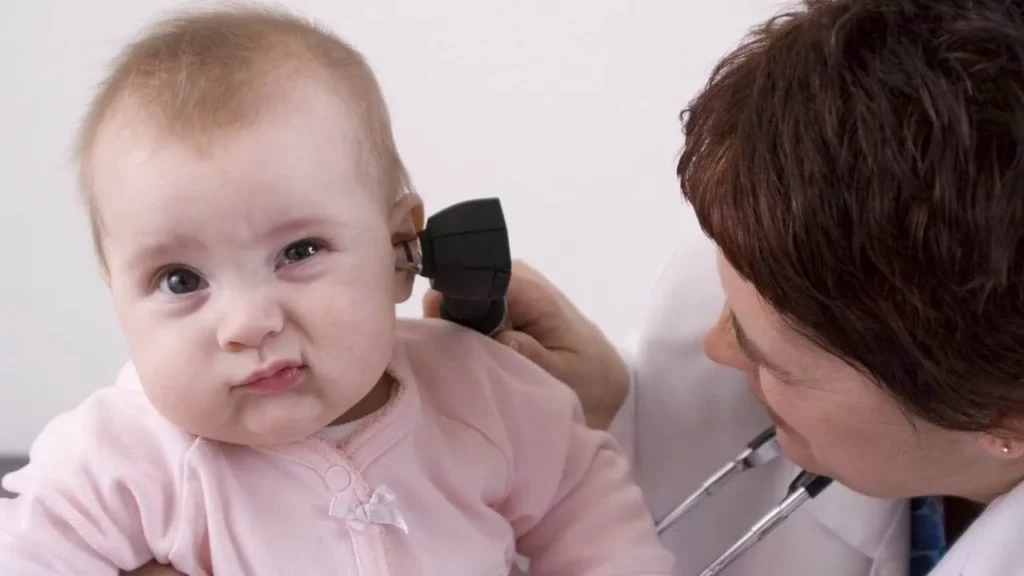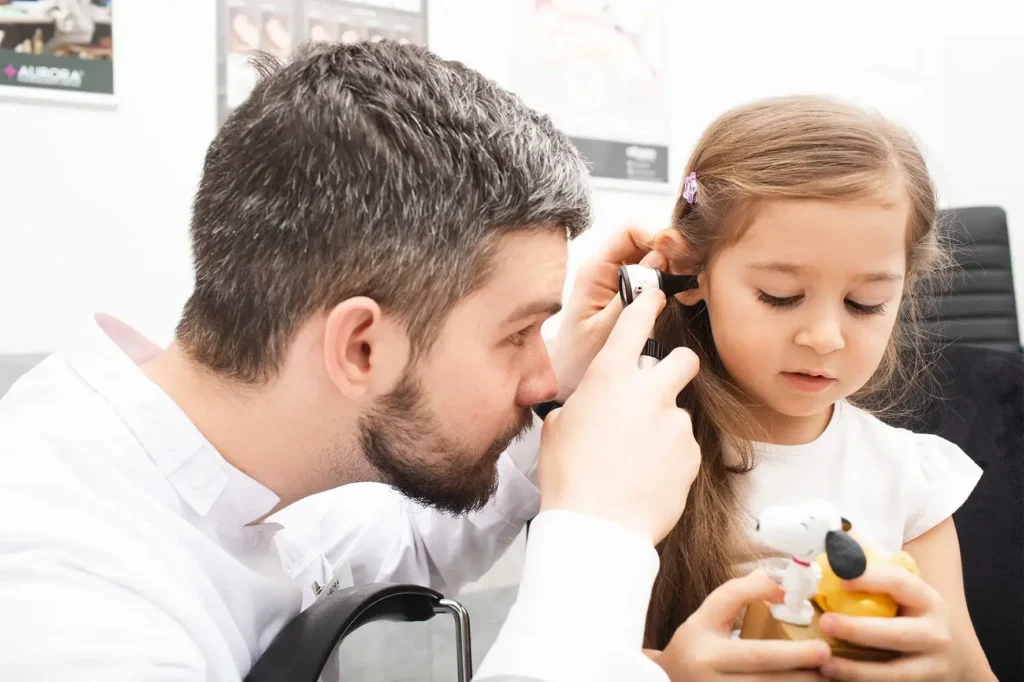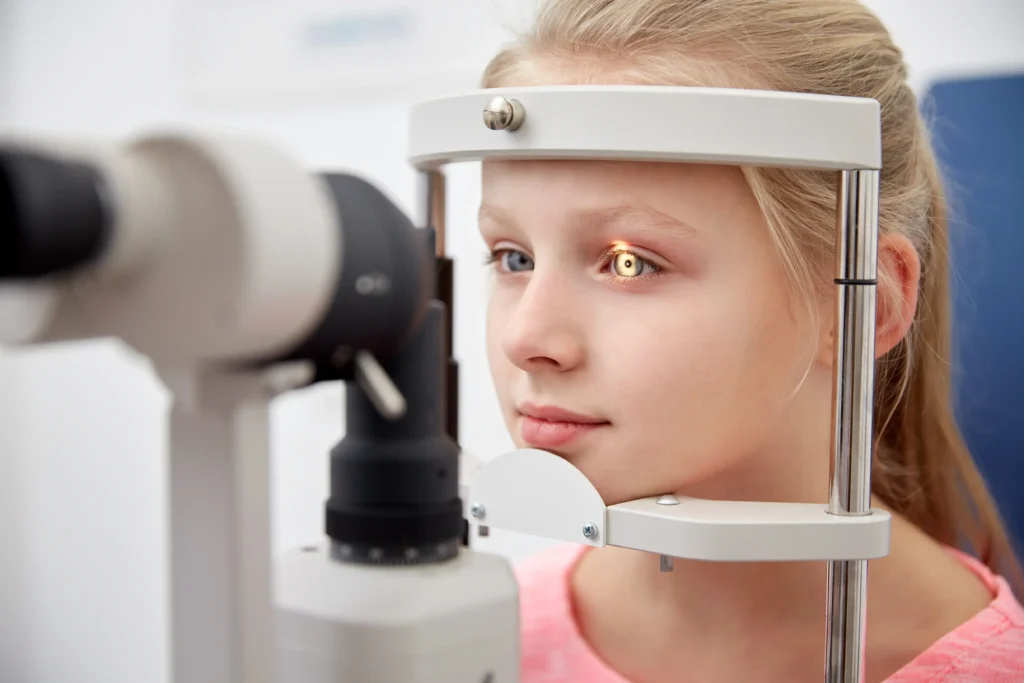Early childhood is a critical period for growth and development, where children depend heavily on their senses, especially hearing and vision, to interact with the world. While regular health check-ups are vital, vision and hearing screenings often take a backseat despite their importance in identifying potential issues affecting a child’s learning, behavior, and social development. If you are in New Jersey and searching for where to get vision and hearing screening or specialized services for kindergarten-aged children, this guide will provide you with all the essential details.

Why Vision and Hearing Screenings Are Essential for Children
What Are Vision and Hearing Screenings?
Vision and hearing screenings are noninvasive evaluations designed to assess a child’s ability to see and hear clearly. They are often conducted in schools, pediatric clinics, or specialized centers. If you’re searching for pediatric eye doctor in NJ , you’ll find numerous accessible options tailored to children’s needs.
Why Is Early Detection Important?
Early detection of hearing or vision problems is crucial for preventing long-term effects on a child’s academic performance, social interactions, and overall quality of life. For parents seeking vision and hearing screenings, timely evaluations can help ensure their child is prepared to face the challenges of school and daily life.
Prevalence of Vision and Hearing Issues
According to the CDC, approximately 15% of children experience some level of hearing loss, while vision issues like nearsightedness and amblyopia affect nearly 25% of school-aged children. These statistics highlight the importance of proactive screenings, especially in states like New Jersey where resources for these services are widely available.
How Hearing Impacts a Child’s Development
The Role of Hearing in Learning and Communication
Hearing plays a foundational role in language development and classroom engagement. Undiagnosed hearing issues can lead to difficulties following instructions, participating in group activities, and keeping up with peers academically.
Social Implications of Hearing Loss
Hearing challenges often lead to social withdrawal, low self-esteem, and frustration. Identifying issues early through screenings available in New Jersey ensures your child can build strong social skills and avoid behavioral struggles.
Signs of Hearing Issues in Children
Be alert to potential indicators such as:
- Delayed speech development
- Frequently asking others to repeat themselves
- Turning up the volume on devices excessively
- Lack of response when called from behind
If you notice any of these signs, conducting a search for a pediatric doctor near you will connect you with a qualified specialist who can thoroughly assess your child and provide the necessary treatment.
How Vision Affects a Child’s Development
The Impact of Vision on Academic Success
Good vision is essential for reading, writing, and interpreting visual information. Poor eyesight can lead to challenges in seeing the board, reading textbooks, or completing homework, all of which are critical for academic success.
Vision and Physical Coordination
Vision problems can affect a child’s spatial awareness and physical coordination, resulting in clumsiness or difficulty participating in sports and other activities requiring hand-eye coordination.
Common Health Issues in Children
Conditions like vision impairments (nearsightedness, farsightedness, and amblyopia) and hearing issues are common in children and often go unnoticed without regular health screenings. Left undiagnosed, these problems can impact a child’s academic performance, social development, and overall quality of life. If you’re in New Jersey, and searching for comprehensive pediatric health screenings and healthcare pediatric services will help you find trusted local specialists who offer early detection and personalized care to support your child’s health and development.
How Screenings Work for Hearing and Vision
What Happens During a Hearing Screening?

Here’s a breakdown of what happens during a vision screening:
- Letter/Shape Identification: The child reads letters or identifies shapes/symbols from a chart at a specific distance.
- Visual Acuity Test: This checks how clearly the child can see objects at various distances.
- Eye Alignment Check: The test ensures that the eyes are properly aligned and working together.
- Depth Perception Test: Assesses the child’s ability to judge distances and spatial relationships.
- Color Blindness Test: Checks if the child has difficulty distinguishing certain colors.
- Follow-up Recommendations: If any issues are detected, further examination or treatment may be recommended.
What Happens During a Vision Screening?

During a vision screening, the following steps typically occur:
- Visual Acuity Test: The child reads letters or identifies symbols from a chart to check how clearly they can see at different distances.
- Eye Alignment Check: The eye doctor ensures both eyes are aligned and working together properly.
- Depth Perception Test: The child’s ability to perceive depth and judge distances is assessed.
- Color Blindness Test: The child may be tested for color vision issues using color plates or charts.
- Additional Checks: The screening may also check for any signs of eye strain, squinting, or unusual pupil responses.
When Should Screenings Be Conducted?
Hearing and vision screenings are essential at key developmental stages. These assessments typically begin with newborn screenings, followed by follow-up evaluations during preschool years and throughout school age. Annual check-ups for children and regular screenings help identify any emerging issues early, ensuring timely intervention and optimal support for your child’s development.
Benefits of Early Detection of Hearing and Vision Issues in Children
Benefits of Early Detection in Hearing Health
- Enhances Language Development: Children with undetected hearing issues often face challenges in learning to speak and understand language. Early detection ensures they can develop strong communication skills.
- Boosts Academic Performance: Proper hearing enables children to follow classroom instructions, participate in discussions, and engage fully in learning activities.
- Improves Social Interaction: By addressing hearing impairments early, children can build social confidence, and engage with others without feeling isolated.
Benefits of Early Detection in Vision Health
- Supports Cognitive Development: Good vision is essential for recognizing patterns, letters, and numbers, aiding in learning and cognitive growth.
- Prevents Vision Deterioration: Early treatment of conditions like amblyopia and refractive errors can prevent further complications and improve outcomes.
- Builds Confidence and Independence: Children with clear vision can explore their surroundings confidently, learning new things with greater ease.
Potential Risks of Undiagnosed Hearing and Vision Problems
Academic Challenges
Children with undiagnosed sensory issues often struggle academically. Reading, writing, and understanding spoken instructions are challenging for kids who can’t fully hear or see, potentially leading to academic delays.
Behavioral and Social Issues
When a child is unable to fully engage with their surroundings, they may become frustrated, withdrawn, or act out. Behavioral issues can arise from the frustration of not being able to communicate effectively or keep up with classmates.
Long-Term Impacts on Development
If left unaddressed, sensory issues can have long-term consequences. Children may develop lower self-esteem, avoid social interactions, and face limitations in learning and development that can persist into adulthood.
Supporting Your Child if a Problem is Detected
What to Do If Your Child Fails a Hearing or Vision Screening
If your child fails a Vision & Hearing Testing, don’t panic. This doesn’t necessarily mean a severe issue, but it does mean further evaluation is needed. Specialists can provide detailed assessments to understand the extent of any issues and recommend the next steps.
Treatment Options for Hearing Issues
Treatment for hearing issues may include hearing aids, speech therapy, or even surgery in some cases. Early intervention can make a significant difference, helping your child catch up on any missed development.
Treatment Options for Vision Issues
For vision problems, treatments may range from corrective glasses to eye exercises, and in some cases, surgery. Many issues, like amblyopia, respond well to treatment when caught early, enabling children to develop normal vision over time.
How Schools Play a Role in Screenings
School-Based Screening Programs
Many schools offer annual hearing and vision screenings, providing an accessible and efficient way to monitor children’s sensory health. These programs are crucial for reaching children who may not receive regular check-ups otherwise. Additionally, Back-to-School medical check-ups for children in New Jersey ensure that children begin their educational journey with the sensory support they need for successful learning and development.
How Schools and Parents Can Collaborate
Parents and schools can work together to ensure that children who fail screenings receive the necessary follow-up care. Clear communication between schools and parents ensures that children receive the support they need.
children receive the support they need.
How to Encourage Your Child to Participate in Screenings
Explaining the Process in a Child-Friendly Way
Explain the screening process to your child in simple, positive terms. Let them know that these tests help keep their ears and eyes healthy, and there’s nothing to fear.
Making It a Positive Experience
Encourage your child by turning the experience into something fun. Some parents find that offering a small reward afterward helps their child feel excited and cooperative during the screenings.
Addressing Any Fears or Concerns
If your child is anxious, let them know that it’s a simple and painless process. Share with them that screenings help doctors make sure their eyes and ears are strong, just like other parts of their body.
Investing in your child’s sensory health is essential for their overall well-being and development. Vision and hearing screenings allow for the early identification and treatment of potential issues, enabling children to grow and learn without unnecessary obstacles. By prioritizing these screenings, parents can give their children the best foundation for a bright, successful future.
Frequently Asked Questions
How often should my child have hearing and vision screenings?
Most experts recommend screenings at least once a year during school-age years, or more frequently if recommended by a pediatrician.
Can eye tests detect brain problems in kids?
Yes, an eye test can sometimes detect signs of brain problems in children, such as optic nerve issues, signs of increased intracranial pressure, or abnormalities in eye movement. These can indicate conditions like brain tumors, neurological disorders, or head injuries. However, further medical tests are necessary for a definitive diagnosis.
Are hearing and vision screenings painful?
No, these screenings are simple, painless tests that assess how well a child hears and sees.
References
- National Institutes of Health. (n.d.). Early Vision and Hearing Screenings in Pediatric Care. Retrieved from www.nih.gov
- Centers for Disease Control and Prevention. (n.d.). Hearing and Vision Screening: Early Detection and Intervention. Retrieved from www.cdc.gov